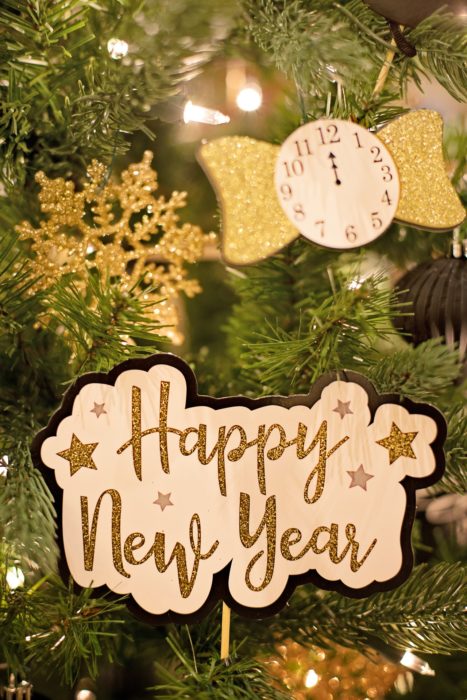The Day Before The Day Before
In western society there is a long lead up to Christmas. No sooner have the gifts been opened and the discarded boxes added to the trash, we are on to the New Year. Lots of talk about resolutions and a new decade and a fresh beginning. Today Marks the day before the day before.
 Tomorrow—New Year’s Eve—is as much a holiday as New Year’s Day. Maybe more so. Today is just the day before the day before the new year. And when New Year’s Day falls in the middle of the week, as it does this year, no one really knows what to do with the day before the day before. Do we go back to work? Try to return to our normal routine? Extend the usual day off for New Year’s?
Tomorrow—New Year’s Eve—is as much a holiday as New Year’s Day. Maybe more so. Today is just the day before the day before the new year. And when New Year’s Day falls in the middle of the week, as it does this year, no one really knows what to do with the day before the day before. Do we go back to work? Try to return to our normal routine? Extend the usual day off for New Year’s?
It’s awkward. A bit of 2019 we simply don’t know what to do with.
The good thing is, God knows.
No days are wasted in His economy. No passing of time slips by His notice.
So, too, the day before the day before.
For one, we can use the day before the day before the New Year begins to evaluate the old year, and in this end of the decade, we can even evaluate the past ten years.
I mean, people are always making a five year plan or even a ten year plan. Where do you see yourself in ten years, they ask.
Looking back is a great prelude to looking forward.
When we think about the great goodness God has shown to us over the past decade, it can give our faith a shot in the arm.
The Bible is replete with “stones of remembrance.” God wants us to remember. In the NAXV the word “remember” occurs 168 times, most (but not all) in a positive light. Many of those references identify things God remembers, such as His covenant with the people of Israel.
Still others are admonitions for His people to remember His wonderful deeds.
To help out, God gave, at various times, tangible objects which were to trigger our memories. For example, to the people coming out of Egypt, God gave them commands and directed Moses to put on the priestly garments, tassels to remind them of the commandments.
There were also the piles of stones when Israel crossed the Jordan God miraculously dried for them: one pile from the river, deposited in the Promised Land; another pile from the Promised Land into the bed of the Jordan River.
I could go on about Passover and the institution of the celebration to remember God’s miraculous deliverance of His people from Egypt. Or the institution of the Feast of Booths or many other tangible “stones of remembrance” God gave. The Sabbath, for example. God tied the Sabbath to one main thing: His creation of the world. When the people of Israel kept the Sabbath, they were to rest as God rested from His creative work.
In the New Testament, God instituted communion and baptism for the purposes of remembering. Jesus specifically said we are to take of the cup and the broken bread in remembrance of Him and His death. Baptism does even more, bringing to life our identification with Jesus in His death and resurrection.
Amazingly, in the New Testament letters, the writers, from time to time, told Christ followers to remember where we came from, what our condition was like before we gave our lives to Jesus. I find that interesting because God says He forgets our sins, that He puts them from Him as far as the east is from the west. But we, on the other hand, He tells to remember our former condition. Not necessarily former specific sins; but lost estate:
Therefore remember that formerly you, the Gentiles in the flesh, who are called “Uncircumcision” by the so-called “Circumcision,” which is performed in the flesh by human hands—remember that you were at that time separate from Christ, excluded from the commonwealth of Israel, and strangers to the covenants of promise, having no hope and without God in the world. But now in Christ Jesus you who formerly were far off have been brought near by the blood of Christ. (Eph. 2:11-13)
 The point is, in remembering we can more clearly move forward, embracing the good gifts God has give us, whether salvation through Jesus or the everyday gifts we share with the common sparrows and the unremarkable flowers which God feeds and clothes.
The point is, in remembering we can more clearly move forward, embracing the good gifts God has give us, whether salvation through Jesus or the everyday gifts we share with the common sparrows and the unremarkable flowers which God feeds and clothes.
So perhaps the day before the day before is the best day to remember. What good things has God done?
In this last decade, we’ve seen changes here at Spec Faith. We have said hello to some regular contributors and good-bye to others. We’ve reviewed any number of books, critiqued any number of movies and even TV programs. We have talked about social trends and spiritual trends. We have hosted numerous guest writers and read a good many novel or story excerpts.
Undoubtedly the biggest development has been the launch of Lorehaven and the efforts to engage readers in actually reading, reviewing, discussing speculative fiction. (If you haven’t already signed up to receive your free copy, I suggest you do so ASAP.)
May you, on this day before the day before, take a moment or ten to look at where you have been—as a reader, a writer, a person—and thank God for what He has done in your life during this past year, this past decade. And may you have a safe and sane New Year’s Eve and a happy New Year.
Photo from Pexels by Jill Wellington, Anna-Louise, and cottonbro











































I don’t typically leave comments on anything, but I feel led to for this post. My dad passed away on the night of December 30th and I read this post on the morning of the 31st when I couldn’t sleep after everything that had happened in the emergency room. Your words were so timely for my situation. I’m scared about life without my dad, and I keep asking why did this happen now? Well, I don’t have an answer for that, but I know God does. This is a time for me and my mom to remember the good days with him and prepare for a brand new life in a brand new year. It won’t happen all at once, but step by step.
I’ve just lost both parents, six weeks apart. I’ve had people give me spiritual-sounding answers that are meant to comfort… but don’t. One that does is to know that Jesus wept over the death of his friend Lazarus. Jesus, even knowing he was going to raise his friend from the dead, still wept. My advice to others has always been, “Please be kind to yourself. Grief is hard.” So now I attempt to take my own advice… and sometimes I succeed.